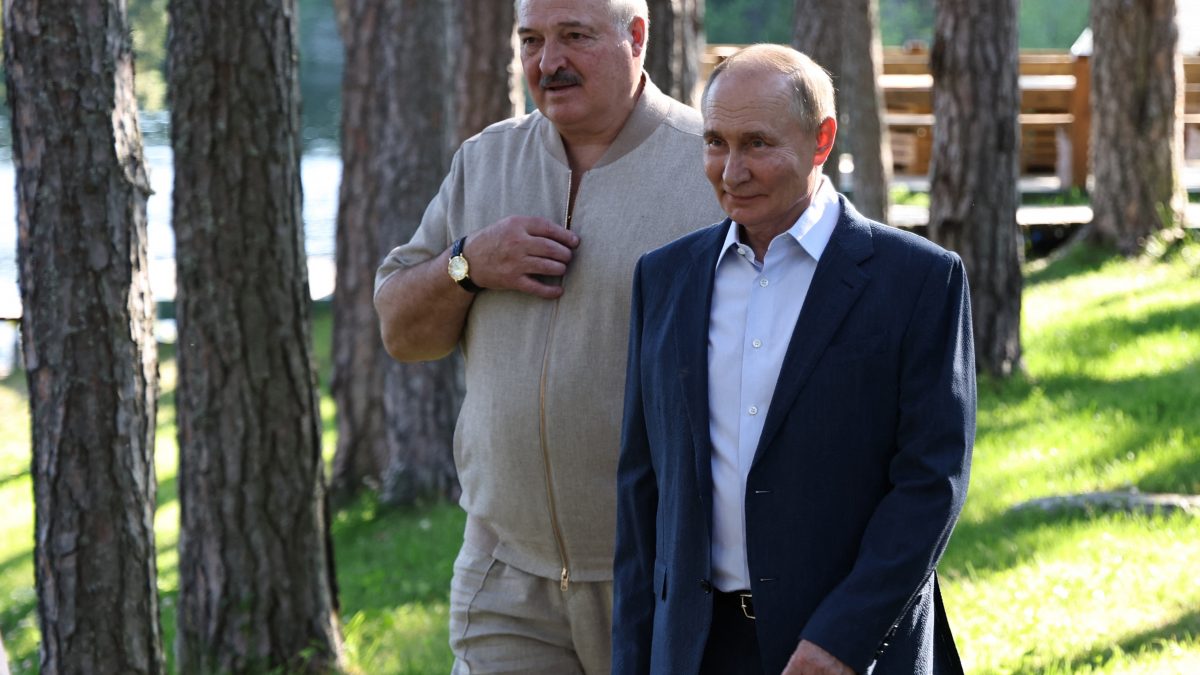Russia and Belarus are set to finalise a mutual security treaty amid heightened tensions with the West.
Kremlin spokesperson Dmitry Peskov confirmed the treaty on Friday (December 6), calling it a “reciprocal initiative” that is necessary given current geopolitical developments.
The announcement coincided with a summit in Minsk between Belarusian President Alexander Lukashenko and Russian President Vladimir Putin, marking the 25th anniversary of the Union State— a political and economic alliance between the neighbouring former Soviet republics.
Here are three key things about the agreement:
1. Reciprocal security commitments
The treaty will formalise mutual security guarantees, ensuring both nations commit to safeguarding each other’s interests.
“This is an absolutely reciprocal initiative,” Peskov was cited as saying by state-run RIA news agency, referring to the treaty.
“The very logic of the development of events dictates the need for such a document.”
2. Integration of nuclear defence
The agreement follows Putin’s recent decision to lower the threshold for a nuclear strike and extend Russia’s nuclear umbrella to Belarus.
Nuclear weapons were withdrawn from Belarus after the fall of the Soviet Union in 1991. However, Moscow deployed tactical nuclear weapons in the country last year as a deterrent against Western aggression. While these weapons remain under Russian control, Lukashenko has stated that their use would require his personal approval.
Impact Shorts
More Shorts3. Coordinated military operations
The treaty builds on an already close military partnership.
Moscow and Minsk conduct regular joint drills, and a Russian-led post-Soviet military bloc plans exercises in Belarus next September.
The agreement signals further alignment of their military strategies in response to regional and global challenges.
This treaty underscores the deepening alliance between the two countries as they navigate growing tensions with the North Atlantic Treaty Organisation (Nato) and Western nations.
With inputs from agencies
)